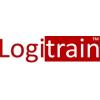Marked 9 months 1 day ago onto Logi Train
Source: https://www.logitrain.com.au/courses/ec-council-training/ethical-hacking-cou...
How Ethical Hacking Can Improve Product Development Cycles
In today's digital landscape, where cybersecurity threats are ever-evolving, the integration of ethical hacking into product development cycles has emerged as a vital strategy for organizations aiming to enhance their security posture. An ethical hacking course can equip professionals with the skills to identify vulnerabilities and proactively address them before they can be exploited. By incorporating ethical hacking into the product development lifecycle, companies can significantly reduce risks, ensure compliance, and foster a culture of security awareness.
Understanding Ethical Hacking
Ethical hacking, often referred to as penetration testing or white-hat hacking, involves the authorized probing of systems, networks, or applications to uncover vulnerabilities. Ethical hackers use the same tools and techniques as malicious hackers but do so with permission and in the interest of improving security. This practice allows organizations to identify weaknesses and remediate them before they become targets for cybercriminals.
The Role of Ethical Hacking in Product Development
1. Identifying Vulnerabilities Early
One of the primary benefits of ethical hacking in product development is the ability to identify vulnerabilities at an early stage. By integrating security assessments into the initial phases of development, teams can uncover issues related to design, coding, and configuration that could potentially lead to security breaches. This proactive approach ensures that security is considered from the outset, rather than as an afterthought.
For example, conducting security assessments during the design phase can help identify potential weaknesses in application architecture, while code reviews can uncover common coding errors that may lead to vulnerabilities. By addressing these issues early, organizations can avoid costly and time-consuming remediation efforts later in the development cycle.
2. Enhancing Collaboration Between Teams
Ethical hacking encourages collaboration between development, security, and operations teams--a practice often referred to as DevSecOps. This approach fosters communication and cooperation among teams that historically operated in silos. By bringing together diverse perspectives, organizations can create more secure products while maintaining the agility needed for rapid development cycles.
For instance, by involving ethical hackers in sprint planning and review meetings, development teams can gain valuable insights into potential security issues and incorporate best practices into their workflows. This collaboration helps ensure that security is an integral part of the product development process rather than a separate concern.
3. Automating Security Testing
Incorporating ethical hacking into product development cycles also paves the way for the automation of security testing. With the rise of continuous integration and continuous deployment (CI/CD) pipelines, automated security testing can be integrated into the development process, allowing teams to identify vulnerabilities quickly and efficiently.
By leveraging tools that automate penetration testing and vulnerability assessments, organizations can streamline their security processes. This automation not only saves time but also increases the accuracy of testing, enabling teams to detect issues that might be overlooked during manual reviews. As a result, organizations can release products faster without compromising security.
4. Enhancing Compliance and Risk Management
Compliance with regulatory standards is crucial for many organizations, particularly those in highly regulated industries such as finance, healthcare, and telecommunications. Ethical hacking plays a significant role in ensuring compliance with security standards and regulations.
Conducting regular ethical hacking assessments can help organizations demonstrate their commitment to security and compliance. By identifying and remediating vulnerabilities, organizations can avoid potential fines, legal liabilities, and reputational damage associated with data breaches. Furthermore, ethical hacking enables organizations to develop comprehensive risk management strategies, ensuring that they are prepared for potential threats.
5. Building Customer Trust
In today's competitive marketplace, customer trust is paramount. Ethical hacking can enhance a company's reputation by demonstrating a commitment to security and data protection. When organizations proactively identify and address vulnerabilities, they signal to customers that their data is safe and secure.
Moreover, by publicly sharing the results of ethical hacking assessments and the measures taken to remediate vulnerabilities, organizations can build transparency and trust with their customers. This level of openness can differentiate a company from its competitors and foster long-term customer loyalty.
Training and Development for Ethical Hacking
As organizations recognize the importance of ethical hacking, the demand for trained professionals continues to grow. Enrolling in an ethical hacking course is a critical step for individuals seeking to enter the field. These courses provide hands-on training in identifying and mitigating vulnerabilities, equipping students with the skills needed to contribute effectively to product development cycles.
Many reputable institutions offer ethical hacking courses, covering various topics such as penetration testing, network security, and risk assessment. By obtaining certifications, individuals can validate their skills and enhance their career prospects in the cybersecurity field.
Conclusion
Incorporating ethical hacking into product development cycles is no longer optional; it has become a necessity in the face of increasing cybersecurity threats. By identifying vulnerabilities early, fostering collaboration, automating security testing, enhancing compliance, and building customer trust, organizations can significantly improve their product development processes.
As the demand for skilled professionals continues to rise, pursuing an ethical hacking course can be a valuable investment for anyone looking to enter this dynamic field. Additionally, for those in Australia, becoming a certified ethical hacker not only enhances career prospects but also contributes to the ongoing efforts to strengthen cybersecurity measures across the nation. By embracing ethical hacking, organizations can not only protect their products but also pave the way for a more secure digital future.




















Comments
Leave your comment below